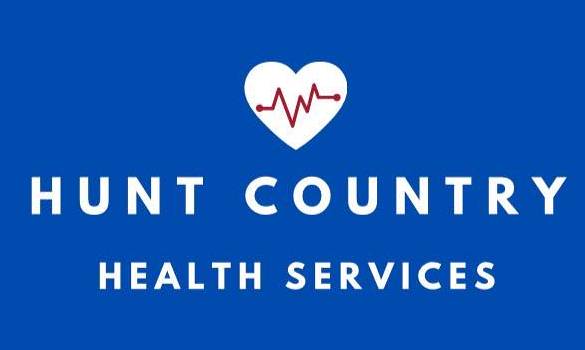Surprising Secrets of ‘Super-Agers’
Kawas: I think there are two that have taken people aback the most. First of all, there’s a very high proportion of individuals in this age range who die with normal cognition or without dementia and yet have high levels of Alzheimer’s disease in their brain. Now, the real question about those people is whether that’s because they’ve escaped the effects of the disease or whether, if they’d lived longer, they would have gone ahead and gotten it. We’re still trying to figure that out.
The second surprising finding is that we’ve been looking at some risk factors for dementia in this age group. Virtually none of the conventional risk factors [for younger seniors] actually apply to this age group. History of hypertension, history of high cholesterol and using statins – which are all risk factors in younger people – appear to protect against Alzheimer’s for people in their 90s rather than raise risk.
WebMD: Do you have any idea why having high blood pressure and high cholesterol would offer protection against Alzheimer’s disease?
Kawas: We’re trying to understand that now. We’re trying to figure out if it is really that having those conditions protects you or if it is the medications you took for those conditions that protected you. There are about a million other possible explanations, but those are the leading two.
We’ve also found that when you develop the hypertension matters. If you developed it in your 50s, 60s or 70s, you don’t appear to be protected by hypertension. It’s only if you developed it in your late 80s or 90s.
WebMD: Are there other issues that can be risky for younger seniors and protective for these older ones?
Kawas: It’s not good to be overweight when you’re young, but with every advancing decade through your 70s, 80s, and 90s, it stops being a risk factor and actually becomes a protective factor for longevity. Definitely being frail and being underweight is an increased risk for lots of stuff as you get older. Underweight people in our study had a 50 percent increase in their mortality, so being thin is not good when you’re old. Maintaining or gaining weight is good.
It might be that being able to gain weight is a sign of robustness. The human body tries really, really hard to gain weight as we age. Why is that? Maybe there’s something good about it. Maybe we’re fighting Mother Nature too much.
WebMD: Why do you think it makes a difference when you develop high blood pressure or when you gain or lose weight?
Kawas: I think the message is that age matters. We know better than to think that the diseases and the treatments for an infant are the same as for an adolescent or that the health issues for an adolescent are the same as the issues for a 60-year-old. But we’ve always acted like whatever we’ve learned from 50-, 60- and 70-year-olds also applies to 80-, 90- and 100-year olds. I think the real message that we’re finding here is that that is not true. Things change with age and we need to study these people specifically to understand what’s really going on and what is the best way to manage their health and maintain their function.
WebMD: Besides being a little overweight, what are some other characteristics that people in your study share?
Kawas: People who live longer get 200 to 400 milligrams of caffeine a day, which is two to three cups of coffee. They drink alcohol once or twice a week. People who exercise live longer than those who don’t, even if it’s only 15 minutes of walking a day. Thirty minutes a day helped more and 45 minutes helped the most. Mercifully, three hours of walking wasn’t any better than 45 minutes.
The benefits of non-exercise activities never leveled off. Every additional hour per day that you reported doing something rather than sitting watching TV when you were in your 70s, increased your likelihood of living longer. We had a smorgasbord of stuff – social engagement, going to any kind of religious, political or social gathering, cognitive exercise like crossword puzzles and playing bridge.
WebMD: How about the quality of their diet?
Kawas: A good diet matters but any individual component didn’t appear to make a difference. So the amount of vitamin C or any other vitamin in the diet didn’t make a difference nor did any particular food. It didn’t matter if you ate more blueberries than everybody else.
WebMD: Do you have any smokers in the group of people that are living past 90?
Kawas: We definitely do. We have a very high percentage of former smokers. Probably more than half of them are former smokers … When they were young, the attitudes about smoking were quite different, so many of them did at least at some point smoke. We have very few current smokers.
WebMD: On a personal note, have you changed any of your own habits?
Kawas: I really believe that the body of scientific evidence supports that a healthy lifestyle reduces your risk of dementia. By healthy lifestyle, I don’t mean any single component or any single food or any single particular kind of exercise. I think it’s more a good diet that is higher in fruits and vegetables than most of us ingest. I try very, very hard to do that, but I have to tell you, my mother fed me much better than I feed myself.
Unfortunately, I hate exercise, but even if you just use it on the level of walking to the parking lot and up stairs instead of elevators and things like that, it’s beneficial. Making sure you get enough sleep and doing whatever you can to limit stress is also important. Using your brain is also really important, although I don’t think using your brain means particularly that you need to do crossword puzzles or any other kind of puzzle or online cognitive exercise. You’re using your brain when you go and engage with people outside your home for whatever purpose. When you do anything that’s a little more interactive with real humans as opposed to a computer terminal or a television set, I think you’ve done something good for your brain.
You stop using parts of your body as you get older. It’s not like when you were younger. I think the brain is just as susceptible.

